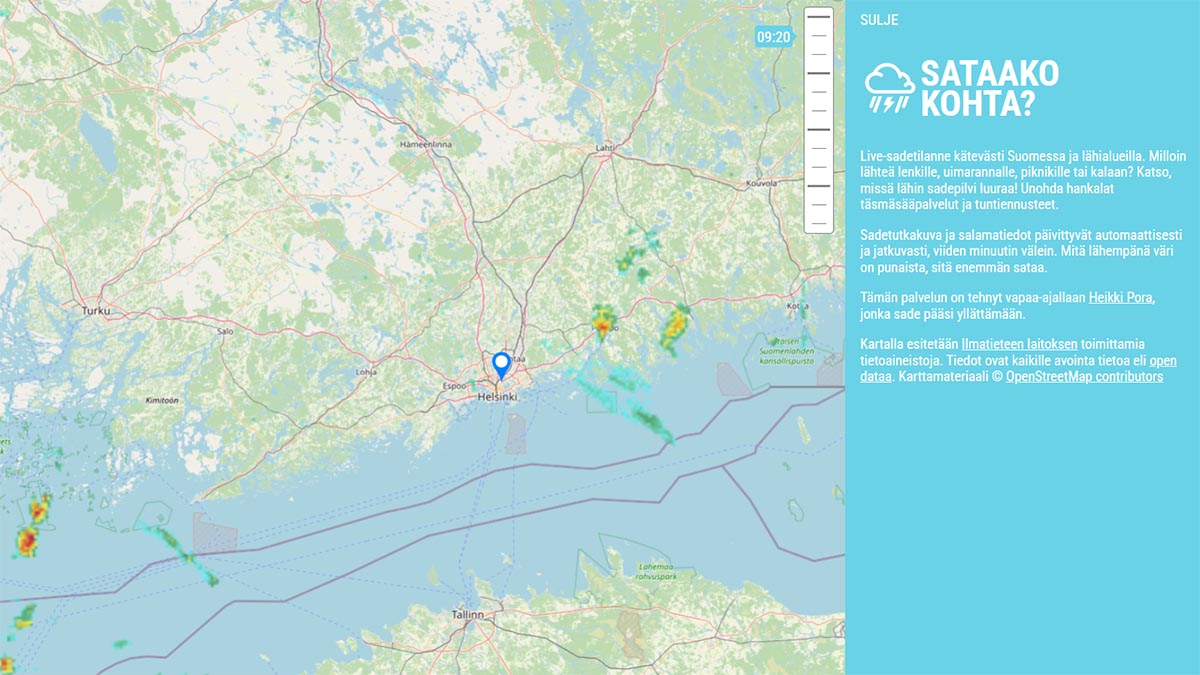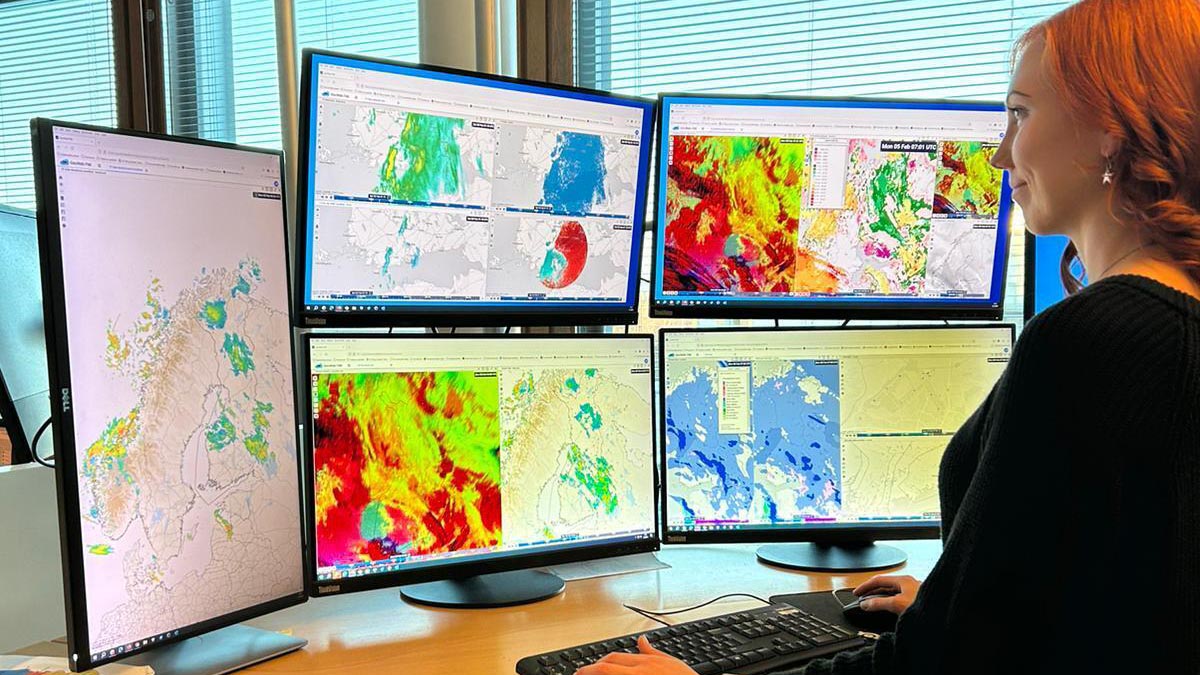Open meteorological data of the Finnish Meteorological Institute is valuable for society as a whole
 Weather data produced by the Finnish Meteorological Institute can be utilised in services that provide information to streamline traffic, for example. Photo by Markus Pentikäinen/Keksi Agency.
Weather data produced by the Finnish Meteorological Institute can be utilised in services that provide information to streamline traffic, for example. Photo by Markus Pentikäinen/Keksi Agency.The Finnish Meteorological Institute has long traditions in the opening of its information resources. Through an open data online service (i.e. an application programming interface or API) maintained by the Finnish Meteorological Institute, anyone can search for and download datasets free of charge in a machine-readable format. The downloading of data does not require any registration: the user only needs to comply with the licensing terms.
“We started opening up our extensive information resources more than 10 years ago. At present, we have an extensive user base consisting of people who are used to utilising our data to support their own work and decision-making,” says Tarja Riihisaari, Head of the Finnish Meteorological Institute’s Observing and Information Systems Centre.
“The up-to-date data produced by the Finnish Meteorological Institute is typically updated often, and its commercial value is therefore especially high.”
Updated in 2019, the Open Data Directive classifies meteorological data such as the data produced by the Finnish Meteorological Institute as high-value datasets (HVD). Efficient reuse of data defined as valuable datasets is considered particularly beneficial for society and the economy.
In addition, the Directive lays down a stronger legislative framework for the Finnish Meteorological Institute’s open data and also harmonises the practices used when sharing open data in Europe. “As a pioneer of open data, the Finnish Meteorological Institute has also contributed to the technical specifications of the Directive,” Riihisaari notes.
The Directive divides high-value datasets into six thematic categories:
Geospatial
Earth observation and environment
Meteorological
Statistics
Companies and company ownership
Mobility
According to the Directive, high-value datasets must be made available through APIs free of charge by the summer of 2024 at the latest. “Most of the Finnish Meteorological Institute’s open data already meets the requirements of the Directive. However, the EU-level development work will continue in the three-year RODEO project,” Riihisaari points out.
Open data is already used in many different ways
As the utilisation of the Finnish Meteorological Institute’s open data does not require registration, detailed information on all the purposes for which the open data is used is not available. Known applications include:
A maritime weather situational awareness system
Optimisation of energy production
Building heating and property maintenance services
Prediction of wastewater and leakage water from water supply systems
In addition to industry, businesses and organisations, the Finnish Meteorological Institute’s open data is utilised in the implementation of many publicly available weather services, as well as by the media, schools and other educational institutions for purposes such as the teaching of physics.

The popular Download observations service on the Finnish Meteorological Institute’s website uses open data. It is an easy-to-use channel available free of charge for those interested in the Finnish Meteorological Institute’s statistics.
RODEO project continues to improve openness of data
The Finnish Meteorological Institute is currently managing the large international RODEO project. The project will gradually make the open data API offered to software developers easier to use, as well as improve the exchange of information between national meteorological institutes.
With the three-year RODEO project, the Finnish Meteorological Institute’s own open data service will be developed and harmonised with the common European API. In future, meteorological data from other EU Member States will also be openly available to everyone through a decentralised system.

Future of open data
In its part, RODEO will improve the usability of public sector meteorological data, as well as promote entrepreneurship and the development of new digital products and services. Furthermore, the significantly larger volume of data will support climate research and the provision of information to support decision-making. As a whole, the wider availability of data will lead to better weather warnings, forecasts and services, and it will support industries in which weather is critical and promote the safety of society.
”Efficient flow of information will improve mobility, save energy and improve decision-making.”
Meteorological and environmental data can be utilised in products and services that provide information to users in real time. According to Riihisaari, one of the future opportunities is the possibility to use meteorological data more extensively in backend systems of increasingly automated modes of transport. Open data can also be used to train AI. ”Efficient flow of information will improve mobility, save energy and improve decision-making,” Riihisaari sums up.
Read more
Finnish Meteorological Institute’s open data
RODEO Project launched – bringing meteorological high-value datasets available for all (Rodeo project’s press release 12 June 2023)
RODEO project’s website https://rodeo-project.eu/